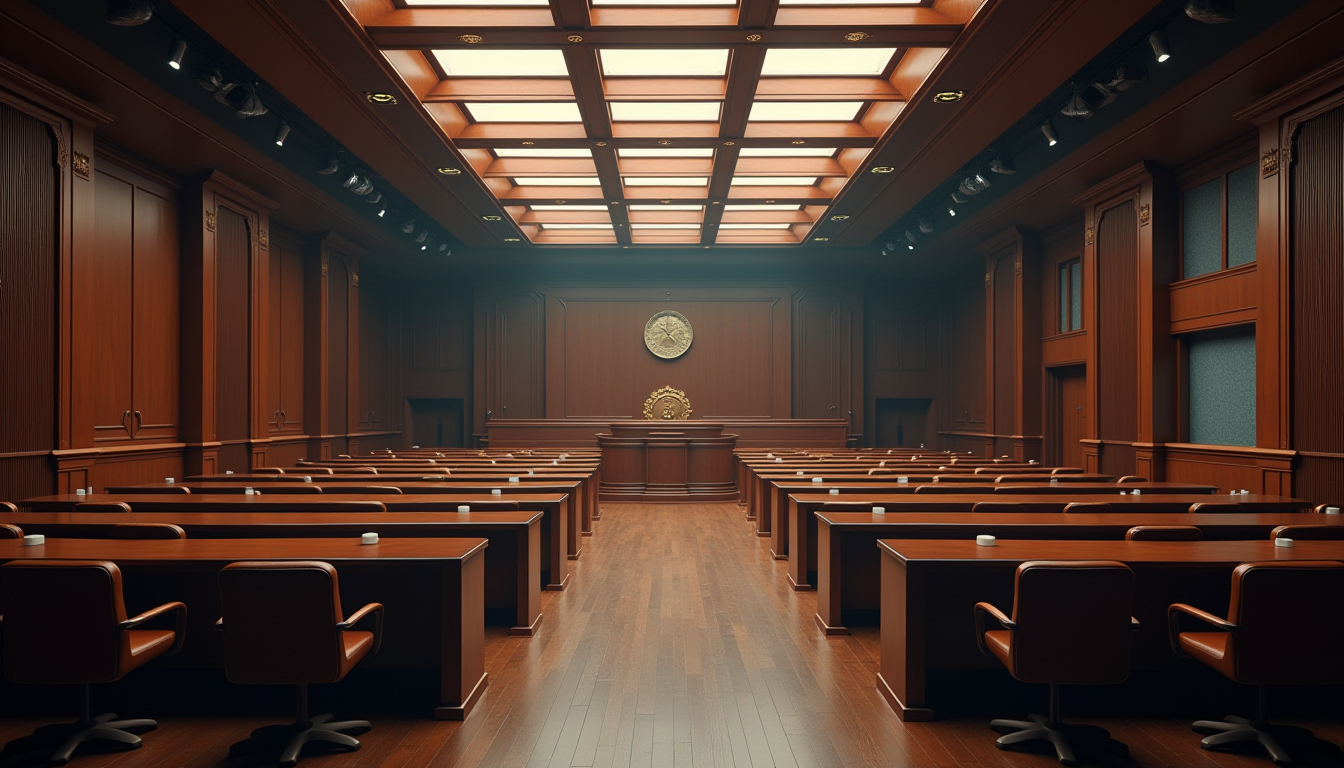
Posted On:
Will the Traditional Courtrooms be Extinct
The rapid advancement of technology is transforming every sector, and the justice system is no exception. From AI-powered case management systems to virtual courtrooms, digital innovations are reshaping how justice is delivered. This raises an important question: Will traditional courtrooms become extinct? While the idea of fully digital courts may seem futuristic, the reality is more nuanced. This blog explores the potential for traditional courtrooms to evolve, the role of technology in shaping the future of justice, and whether physical courtrooms will eventually fade into history.
The Rise of Digital Justice Systems
Digital transformation is already making significant inroads into the justice sector. Courts worldwide are adopting technologies such as e-filing systems, virtual hearings, and AI-powered decision-support tools. These innovations address long-standing challenges like case backlogs, inefficiencies, and limited access to justice. For example, during the COVID-19 pandemic, virtual courtrooms became essential, enabling courts to operate remotely and ensuring continuity of justice. Similarly, AI tools are being used to analyze case data, predict outcomes, and streamline administrative tasks, reducing the burden on judges and court staff.
The benefits of digital justice systems are clear:
-
Efficiency: Automated processes reduce delays and backlogs.
-
Accessibility: Remote hearings and online dispute resolution platforms make justice more accessible, especially for underserved and remote communities.
-
Transparency: Digital records and real-time transcription enhance accountability and trust in the justice system.
-
Cost-Effectiveness: Reducing paperwork and streamlining processes lowers operational costs for courts and litigants.
Given these advantages, it’s easy to see why digital justice systems are gaining traction. But does this mean traditional courtrooms will disappear entirely?
The Case for Traditional Courtrooms
Despite the rise of digital technologies, traditional courtrooms continue to play a vital role in the justice system. Here’s why:
-
Human Element and Empathy: Justice is not just about applying the law; it’s about understanding human experiences, emotions, and contexts. Judges, lawyers, and juries bring empathy and moral judgment to complex cases, such as those involving family disputes, criminal trials, or human rights issues. These nuances are difficult to replicate with technology.
-
Complex Cases Require Human Judgment: While AI can handle routine tasks and straightforward cases, complex legal matters often require nuanced interpretation of the law, ethical considerations, and contextual understanding. For example, criminal cases involving intent or motive may require human judgment to assess credibility and weigh evidence.
-
Public Trust and Legitimacy: Traditional courtrooms have a long history of legitimacy and public trust. Many people view physical courtrooms as symbols of justice and fairness. Transitioning to fully digital courts could erode this trust, especially if people perceive technology as impersonal or biased.
-
Digital Divide: Not everyone has access to the technology or digital literacy required to participate in virtual courtrooms. In many parts of Africa and other developing regions, limited internet access, lack of devices, and low digital literacy could exclude vulnerable populations from accessing justice.
-
Cultural and Legal Acceptance: Many legal systems are deeply rooted in tradition and require physical presence for certain proceedings. For example, criminal trials often involve the physical presence of the accused, witnesses, and legal representatives to ensure due process and fairness.
The Hybrid Model: Blending Tradition with Technology
Rather than replacing traditional courtrooms entirely, the future of justice is likely to involve a hybrid model that combines the best of both worlds. In this model, technology handles routine tasks and straightforward cases, while traditional courtrooms focus on complex matters requiring human judgment and empathy.
For example:
-
Routine Cases: Small claims, traffic violations, and administrative disputes can be resolved through online dispute resolution platforms or virtual courtrooms.
-
Complex Cases: Criminal trials, family disputes, and high-stakes civil cases would continue to be heard in traditional courtrooms, with technology supporting judges and lawyers through tools like AI-powered legal research and evidence analysis.
This hybrid approach ensures that justice systems remain efficient, accessible, and fair while preserving the human element that is essential for complex cases. It also allows courts to gradually adopt technology, addressing concerns about the digital divide and public trust.
Challenges to Overcome
While the hybrid model offers a balanced approach, several challenges must be addressed to ensure its success:
-
Ethical Concerns: The use of AI and automation in justice systems raises ethical questions about bias, transparency, and accountability. For example, AI systems trained on biased data could perpetuate existing inequalities. Ensuring fairness and transparency in digital justice systems is critical.
-
Data Privacy and Security: Courts handle sensitive personal information, and digital systems must be secure to prevent breaches or misuse. Robust cybersecurity measures and data protection laws are essential to safeguard confidential information.
-
Digital Divide: Bridging gaps in technology access and digital literacy is crucial to ensure that all individuals can participate in digital justice systems. Governments and organizations must invest in infrastructure, training, and awareness programs to address these challenges.
-
Legal and Cultural Acceptance: Transitioning to digital justice systems requires changes in laws, regulations, and cultural attitudes. For example, laws governing the admissibility of digital evidence or the use of AI in decision-making must be updated to reflect technological advancements.
The Role of eJustice Africa in Shaping the Future
At eJustice Africa, we are at the forefront of driving digital transformation in justice systems across the continent. Our services, including digital transformation, business process reengineering, and AI-powered solutions, are designed to enhance efficiency, accessibility, and transparency in courts. However, we also recognize the importance of preserving the human element in justice delivery.
We advocate for a hybrid model that leverages technology to handle routine tasks while maintaining traditional courtrooms for complex cases. Our approach includes:
-
Developing virtual courtroom solutions for remote hearings and online dispute resolution.
-
Providing training and capacity-building programs to help courts and legal professionals adopt technology effectively.
-
Supporting legal reforms to create an enabling environment for digital justice.
-
Ensuring ethical AI development to promote fairness and transparency in decision-making.
By combining technology with human expertise, we aim to create a justice system that is efficient, accessible, and fair for all.
The Future of Courtrooms
The question of whether traditional courtrooms will become extinct is not a simple yes or no. While digital technologies are transforming justice systems, traditional courtrooms will continue to play a vital role, especially in complex cases requiring human judgment and empathy. The future of justice lies in a hybrid model that blends the efficiency of technology with the fairness and legitimacy of traditional courtrooms.
At eJustice Africa, we are committed to driving this transformation, ensuring that justice systems are equipped to meet the needs of the digital age while upholding the principles of fairness, accountability, and inclusivity. Join us in building a future where technology and tradition work hand in hand to deliver justice for all.
What are your thoughts on the future of courtrooms? Share your views in the comments below!

Comments